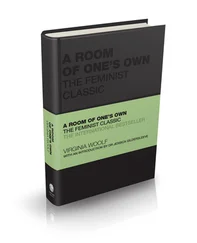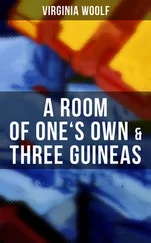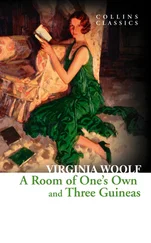Virginia Woolf - Jacob's Room
Здесь есть возможность читать онлайн «Virginia Woolf - Jacob's Room» весь текст электронной книги совершенно бесплатно (целиком полную версию без сокращений). В некоторых случаях можно слушать аудио, скачать через торрент в формате fb2 и присутствует краткое содержание. Жанр: Классическая проза, на английском языке. Описание произведения, (предисловие) а так же отзывы посетителей доступны на портале библиотеки ЛибКат.
- Название:Jacob's Room
- Автор:
- Жанр:
- Год:неизвестен
- ISBN:нет данных
- Рейтинг книги:3 / 5. Голосов: 1
-
Избранное:Добавить в избранное
- Отзывы:
-
Ваша оценка:
- 60
- 1
- 2
- 3
- 4
- 5
Jacob's Room: краткое содержание, описание и аннотация
Предлагаем к чтению аннотацию, описание, краткое содержание или предисловие (зависит от того, что написал сам автор книги «Jacob's Room»). Если вы не нашли необходимую информацию о книге — напишите в комментариях, мы постараемся отыскать её.
Jacob's Room — читать онлайн бесплатно полную книгу (весь текст) целиком
Ниже представлен текст книги, разбитый по страницам. Система сохранения места последней прочитанной страницы, позволяет с удобством читать онлайн бесплатно книгу «Jacob's Room», без необходимости каждый раз заново искать на чём Вы остановились. Поставьте закладку, и сможете в любой момент перейти на страницу, на которой закончили чтение.
Интервал:
Закладка:
"Holborn straight ahead of you," says the policeman. Ah, but where are you going if instead of brushing past the old man with the white beard, the silver medal, and the cheap violin, you let him go on with his story, which ends in an invitation to step somewhere, to his room, presumably, off Queen's Square, and there he shows you a collection of birds' eggs and a letter from the Prince of Wales's secretary, and this (skipping the intermediate stages) brings you one winter's day to the Essex coast, where the little boat makes off to the ship, and the ship sails and you behold on the skyline the Azores; and the flamingoes rise; and there you sit on the verge of the marsh drinking rum-punch, an outcast from civilization, for you have committed a crime, are infected with yellow fever as likely as not, and-fill in the sketch as you like. As frequent as street corners in Holborn are these chasms in the continuity of our ways. Yet we keep straight on.
Rose Shaw, talking in rather an emotional manner to Mr. Bowley at Mrs. Durrant's evening party a few nights back, said that life was wicked because a man called Jimmy refused to marry a woman called (if memory serves) Helen Aitken.
Both were beautiful. Both were inanimate. The oval tea-table invariably separated them, and the plate of biscuits was all he ever gave her. He bowed; she inclined her head. They danced. He danced divinely. They sat in the alcove; never a word was said. Her pillow was wet with tears. Kind Mr. Bowley and dear Rose Shaw marvelled and deplored. Bowley had rooms in the Albany. Rose was re-born every evening precisely as the clock struck eight. All four were civilization's triumphs, and if you persist that a command of the English language is part of our inheritance, one can only reply that beauty is almost always dumb. Male beauty in association with female beauty breeds in the onlooker a sense of fear. Often have I seen them-Helen and Jimmy-and likened them to ships adrift, and feared for my own little craft. Or again, have you ever watched fine collie dogs couchant at twenty yards' distance? As she passed him his cup there was that quiver in her flanks. Bowley saw what was up-asked Jimmy to breakfast. Helen must have confided in Rose. For my own part, I find it exceedingly difficult to interpret songs without words. And now Jimmy feeds crows in Flanders and Helen visits hospitals. Oh, life is damnable, life is wicked, as Rose Shaw said.
The lamps of London uphold the dark as upon the points of burning bayonets. The yellow canopy sinks and swells over the great four-poster. Passengers in the mail-coaches running into London in the eighteenth century looked through leafless branches and saw it flaring beneath them. The light burns behind yellow blinds and pink blinds, and above fanlights, and down in basement windows. The street market in Soho is fierce with light. Raw meat, china mugs, and silk stockings blaze in it. Raw voices wrap themselves round the flaring gas-jets. Arms akimbo, they stand on the pavement bawling-Messrs. Kettle and Wilkinson; their wives sit in the shop, furs wrapped round their necks, arms folded, eyes contemptuous. Such faces as one sees. The little man fingering the meat must have squatted before the fire in innumerable lodging-houses, and heard and seen and known so much that it seems to utter itself even volubly from dark eyes, loose lips, as he fingers the meat silently, his face sad as a poet's, and never a song sung. Shawled women carry babies with purple eyelids; boys stand at street corners; girls look across the road-rude illustrations, pictures in a book whose pages we turn over and over as if we should at last find what we look for. Every face, every shop, bedroom window, public-house, and dark square is a picture feverishly turned-in search of what? It is the same with books. What do we seek through millions of pages? Still hopefully turning the pages-oh, here is Jacob's room.
He sat at the table reading the Globe. The pinkish sheet was spread flat before him. He propped his face in his hand, so that the skin of his cheek was wrinkled in deep folds. Terribly severe he looked, set, and defiant. (What people go through in half an hour! But nothing could save him. These events are features of our landscape. A foreigner coming to London could scarcely miss seeing St. Paul's.) He judged life. These pinkish and greenish newspapers are thin sheets of gelatine pressed nightly over the brain and heart of the world. They take the impression of the whole. Jacob cast his eye over it. A strike, a murder, football, bodies found; vociferation from all parts of England simultaneously. How miserable it is that the Globe newspaper offers nothing better to Jacob Flanders! When a child begins to read history one marvels, sorrowfully, to hear him spell out in his new voice the ancient words.
The Prime Minister's speech was reported in something over five columns. Feeling in his pocket, Jacob took out a pipe and proceeded to fill it. Five minutes, ten minutes, fifteen minutes passed. Jacob took the paper over to the fire. The Prime Minister proposed a measure for giving Home Rule to Ireland. Jacob knocked out his pipe. He was certainly thinking about Home Rule in Ireland-a very difficult matter. A very cold night.
The snow, which had been falling all night, lay at three o'clock in the afternoon over the fields and the hill. Clumps of withered grass stood out upon the hill-top; the furze bushes were black, and now and then a black shiver crossed the snow as the wind drove flurries of frozen particles before it. The sound was that of a broom sweeping-sweeping.
The stream crept along by the road unseen by any one. Sticks and leaves caught in the frozen grass. The sky was sullen grey and the trees of black iron. Uncompromising was the severity of the country. At four o'clock the snow was again falling. The day had gone out.
A window tinged yellow about two feet across alone combated the white fields and the black trees... At six o'clock a man's figure carrying a lantern crossed the field... A raft of twig stayed upon a stone, suddenly detached itself, and floated towards the culvert... A load of snow slipped and fell from a fir branch... Later there was a mournful cry... A motor car came along the road shoving the dark before it... The dark shut down behind it...
Spaces of complete immobility separated each of these movements. The land seemed to lie dead... Then the old shepherd returned stiffly across the field. Stiffly and painfully the frozen earth was trodden under and gave beneath pressure like a treadmill. The worn voices of clocks repeated the fact of the hour all night long.
Jacob, too, heard them, and raked out the fire. He rose. He stretched himself. He went to bed.
CHAPTER NINE
The Countess of Rocksbier sat at the head of the table alone with Jacob. Fed upon champagne and spices for at least two centuries (four, if you count the female line), the Countess Lucy looked well fed. A discriminating nose she had for scents, prolonged, as if in quest of them; her underlip protruded a narrow red shelf; her eyes were small, with sandy tufts for eyebrows, and her jowl was heavy. Behind her (the window looked on Grosvenor Square) stood Moll Pratt on the pavement, offering violets for sale; and Mrs. Hilda Thomas, lifting her skirts, preparing to cross the road. One was from Walworth; the other from Putney. Both wore black stockings, but Mrs. Thomas was coiled in furs. The comparison was much in Lady Rocksbier's favour. Moll had more humour, but was violent; stupid too. Hilda Thomas was mealy-mouthed, all her silver frames aslant; egg-cups in the drawing-room; and the windows shrouded. Lady Rocksbier, whatever the deficiencies of her profile, had been a great rider to hounds. She used her knife with authority, tore her chicken bones, asking Jacob's pardon, with her own hands.
Читать дальшеИнтервал:
Закладка:
Похожие книги на «Jacob's Room»
Представляем Вашему вниманию похожие книги на «Jacob's Room» списком для выбора. Мы отобрали схожую по названию и смыслу литературу в надежде предоставить читателям больше вариантов отыскать новые, интересные, ещё непрочитанные произведения.
Обсуждение, отзывы о книге «Jacob's Room» и просто собственные мнения читателей. Оставьте ваши комментарии, напишите, что Вы думаете о произведении, его смысле или главных героях. Укажите что конкретно понравилось, а что нет, и почему Вы так считаете.











